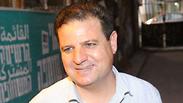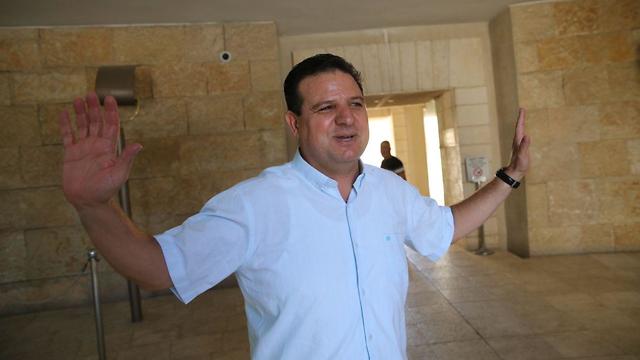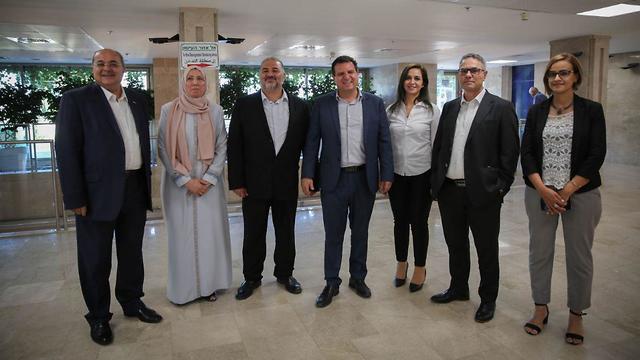
I remember that I had to be taken to a doctor, but my father wasn't able to get an exit permit from the village, despite trying for a whole week. We had to get someone to help us and were then finally able to receive the permit.
Back then, my father had to settle for one light bulb to light the entire house and was thankful. But we couldn't settle for that, and my sons also didn't settle for what my generation had achieved. If back then we were happy to be allowed to participate in democratic elections, now Israeli Arabs are ready for the next level: taking part in the decision making.
The statement that MK Ayman Odeh made in an interview with Yedioth Ahronoth last week was an immense expression of leadership. Finally, we have a leader who expresses the authentic desires of a growing part of Arab society. Arabs want - and are willing and able - to be fully incorporated into Israeli society.
And I'm not saying this based on random conversations. In recent research, we learned that 46% of Arabs believe and demand a society of co-existence, based on real equality between Jews and Arabs. Some 70% of us don't feel like our political representatives are doing enough, if anything at all, to make this vision come true.
One of the most difficult political issues that Israeli Arab society faces is the low voter turnout. It was lower than 50% in the April elections.
Many Arab citizens, especially of the younger generation, have lost interest in a system of which they don't feel a part. And one of the reasons that they don't feel a part of it is because their leaders state in advance that don't intend to take responsibility and be part of any kind of coalition.
Of course, there are internal problems regarding that matter, especially from the side of Balad, a party that represents the more radical sector of Arab society and forms a strong opposition to Odeh. He knew that his statements would create much objection from Balad but was prepared to pay the price and followed through. This is real leadership: saying and doing what's right, not just what feels convenient.
It's not surprising that politicians from what we call "the center" were quick to shake off Odeh's statement, despite that fact that without Arab parties, they don't actually have the ability to form a government.
Indeed, the task of taking Odeh's statement to the next level lies in the hands of what's left of the Israeli left. A peaceful, prosperous, safe and democratic existence here is impossible without Arabs citizens in governmental positions, where the decisions are made. And with power will come great responsibility and a sense of belonging.
Leaders are measured by their actions in times of trial. Ayman Odeh has made the first step. Will Jewish leaders dare to be as courageous?
Riad Kabha is the Director of the Jewish-Arab Center for Peace in Givat Haviva


















